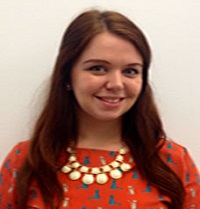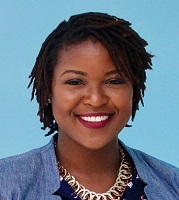
Meet our Staff: Madison Hammett and Tiffany N. Ford
Madison Hammett, MPH, MSW

Meet our newest staff member, Madison Hammett, Policy Analyst for the Illinois ACEs Response Collaborative. Madison joins Health & Medicine from Stroger Hospital of Cook County where she worked as a social worker for the Department of Trauma providing psychoeducation and support to adolescent survivors of trauma. She is also a Fellow for Life with the Chicago Area Schweitzer Fellows Program, for which she developed a trauma-informed support program for incarcerated mothers and their children.
After working a few years in direct services as a social worker in the trauma unit at Stroger Hospital, I wanted to do work that would make a more comprehensive impact on my patients and their healthcare. Often in direct services, it can feel overwhelming because we have very little say in the macro-level work that influence care and resources, as well as the circumstances that bring patients to us. Working at Health & Medicine was appealing to me due to broad reach of the organization, as well as the potential impact of our programming and partnerships. Rather than spending time in a reactive role, where I was often putting out fires well after the trauma had occurred, now I can do work that impacts people all over the state and leads to the prevention of trauma and exposure to ACEs.
I wanted to be either an archaeologist like Indiana Jones or a doctor, so I split the difference and got a degree in medical anthropology.

This summer, Health & Medicine bids a fond farewell to Senior Policy Analyst Tiffany N. Ford. Tiffany joined the Health & Medicine team in May 2016 and has worked on diverse projects including our forum series, health workforce efforts, and our health equity initiatives. This fall Tiffany will begin pursuing her PhD in Public Policy at the University of Maryland.
My favorite part of working at Health & Medicine is being in a space where I am able to speak openly and honestly about my politics. I feel comfortable naming the deeply rooted norms and values that shape health inequities, like racism and classism. I recognize that not everyone has the freedom to do that in their job; I am happy to have had that here at Health & Medicine.
Favorite project since you’ve been here?
I’ve gotten to work on a ton of really interesting projects in my two years here at Health & Medicine. My favorite however, is a paper that I wrote that topic-wise probably seems the least exciting. Last summer, we released a report called Efficient Health Workforce Data Collection in Illinois. That paper recommended that Illinois collect detailed data at the point of relicensure for all health professionals in the state. That project is my favorite because it began as my practicum research project when I was still in graduate school and interning at Health & Medicine. It is really special to me that that work was able to become a full policy recommendation brought before the Illinois Department of Financial and Professional Regulation. I’m really proud of that.
Tell us about your next steps? Why did you chose to go for your PhD?
I’ll be leaving Health & Medicine in July to begin my PhD in Public Policy (specializing in Social Policy) at the University of Maryland in College Park. I chose a PhD program in public policy because I wanted to sharpen my lens as a policy researcher, analyst, and scholar so that I can more effectively contribute to the design and implementation of more equitable policy solutions that advance the process of health equity in the U.S. I am specifically interested in research and data that inform urban policy decisions in major cities like Chicago.

